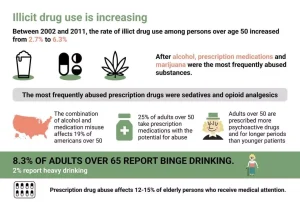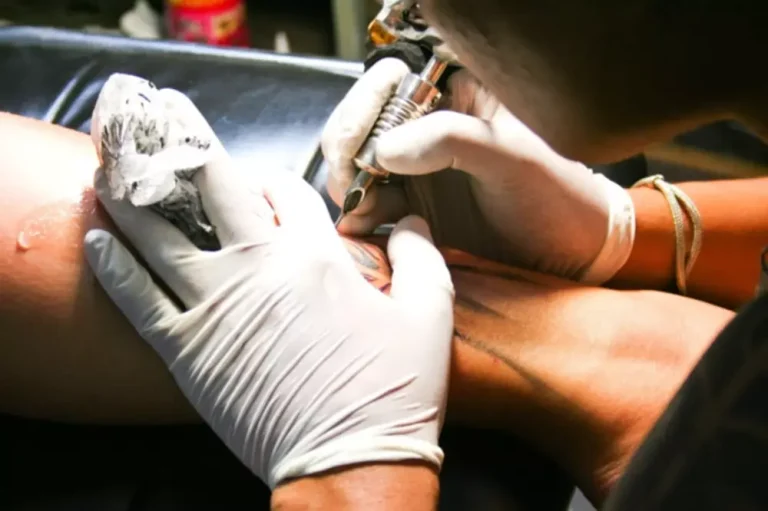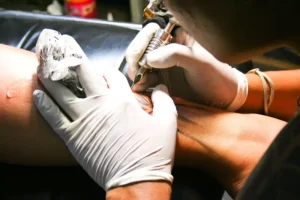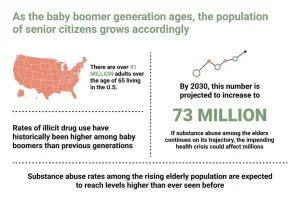
Binge drinking is defined as drinking so much within a short space of time (about two hours) that blood alcohol levels reach the legal limit of intoxication. For kids and teens, that usually means having three or more drinks at one sitting. Young people who binge drink are more likely to miss classes at school, fall behind with their schoolwork, damage property, sustain an injury, or become victims of assault. Remind your teen that underage drinking is illegal and that they can be arrested for it. Your teen should also understand that drinking alcohol comes with specific consequences. Agree on rules and punishments ahead what is Oxford House of time and stick to them—just don’t make hollow threats or set rules you cannot enforce.
Warning Signs Of Teenage Alcoholism
Young people are at greater risk of alcohol-related harm than adults. As the brain keeps developing into the mid-twenties, drinking alcohol as a teenager can increase the risk of harm to the developing brain. Primary care clinicians conduct alcohol screening in adults and provide brief behavioral counseling interventions for the full range of unhealthy drinking behaviors, from alcohol misuse to alcohol use disorder. Due to inexperience with alcohol, generally lower aversion to risk, and susceptibility to peer pressure, teenagers have a substantially higher risk for binge drinking than most other age groups. Binge drinking is defined as consuming 4 or more alcoholic beverages in under 2 hours for women or consuming 5 or more alcohol beverages in the same amount of time for men.

Sober Summer Camps for Teens

If you have concerns about your child’s alcohol use, you may want to reevaluate and make changes to your own drinking habits as well. There are ways to help your teen cope with the pressures to drink alcohol and make better choices. While it is common for people to try alcohol in adolescence, alcohol use in teens can be detrimental to health and may affect brain development and mental health. Co-use of multiple substances may influence the relationship between alcohol use and neural integrity. Further, the risk of developing a problem with alcohol use later in life is increased as well. Teens who begin drinking before age 15 have a41%chance of struggling with alcohol dependence when they are older.

Adult alcohol use can increase underage drinking
- But it can help your child feel that you are coming from a place of love and concern, rather than anger.
- Parents can talk with their children about the dangers of drinking at a young age.
- This may be due to discrimination, which causes stress and harms mental health.
- This changeability, or plasticity, means that the brain can be vulnerable to the effects of alcohol.
You can encourage safer drinking behaviour and create a space where the young person feels safe to come to you about any questions. This can mean they are more likely to reach out for help when they need. The average age of young people trying alcohol for the first time has also risen, from 14.7 years in 2001 to 16.2 years in 2019.
The Substance Abuse and Mental Health Services Administration (SAMHSA) provides the most reliable estimates of alcohol use by young people in the United States. Seeking help for addiction may feel daunting or even scary, but several organizations can provide support. Learn more about the effects of racism on health and the impact of homophobia. If you do have any of these symptoms, then alcohol may already be a cause for concern, and a conversation about alcohol use with a professional is recommended. For more information about alcohol’s effects on the body, please see the NIAAA Interactive Body.
Recovery From Consequences of Adolescent Heavy Drinking
With these guidelines can help you identify the best ways to talk to your child about alcohol, address potential underlying problems that may be triggering their alcohol use, and help them to make smarter choices in the future. For this reason, it is important for parents or caregivers, schools, and communities to know the risks and address education about alcohol among young people. The National Institutes of Health (NIH) emphasizes that a caregiver’s attitude toward alcohol and teen drinking can significantly affect the likelihood of their child drinking.

Alcohol Abuse & Treatment Information On Other Groups
It’s difficult to prevent teenagers from experimenting with alcohol, but parents and carers can encourage safer drinking habits. The consequences of underage drinking can affect everyone—regardless of age or drinking status. “Younger individuals are more likely to be intoxicated, and this impairs their mental and physical health, leading them to engage in risky activities while riding these micromobility devices that can result in injuries,” the researchers said. Alcohol use was a factor in many of the injuries, and rates of use were highest among teens and college-age males, reported a team from North Dakota State University, in Fargo. “Younger =https://ecosoberhouse.com/ individuals are more likely to be intoxicated, and this impairs their mental and physical health, leading them to engage in risky activities while riding these micromobility devices that can result in injuries,” the researchers said. Alcohol use was a factor in many of the injuries, and rates of use were highest among teens and college-age males, reported a team from North Dakota State University, in Fargo.
Helping Someone with a Drinking Problem
Since alcohol is a depressant, using it to self-medicate can make problems even worse. If your child is regularly drinking on their own or drinking during the teenage alcoholism day it could be they’re struggling to cope with a serious underlying issue. You can help by fostering a relationship with your child where they feel that they can be open and honest with you, rather than being immediately disciplined. As a result, teen drinking can potentially lead to other risk-taking behaviors, such as drinking and driving, injury, or unsafe sex. Although binge drinking can have negative health consequences, not all people who binge drink are necessarily addicted to alcohol. Lastly, people who start drinking earlier in life have a higher risk of developing alcohol use disorder later in life.
Helping a teen who’s underage drinking
If your teen is in an unconscious or semiconscious state, their breathing is very slow, their skin clammy, and there’s a powerful odor of alcohol, there’s a strong chance they may have alcohol poisoning. As disturbing as it can be to find out that your child or teen has been drinking, it’s important to remember that many teens try alcohol at some point, but that doesn’t mean they automatically have an abuse problem. Your goal should be to discourage further drinking and encourage better decision-making in the future. As kids enter their teens, friends exert more and more influence over the choices they make. Desperate to fit in and be accepted, kids are much more likely to drink when their friends drink. One major sign of underage drinking that you as a parent can look for is a sudden change in peer group.
Treatment Specifically for Alcoholism in Adolescents
Adolescents are particularly vulnerable to the harmful effects of alcohol due to their developing brains and bodies. If you’re a child or teen and are worried about your own or a friend’s drinking, it’s important to reach out to an adult you trust. If you don’t feel you can talk to a parent, reach out to a family friend, older sibling, or school counselor, for example, or call one of the helplines listed below. Some kids drink alone or with friends to alleviate boredom; others drink to gain confidence, especially in social situations. You can help by exposing your teen to healthy hobbies and activities, such as team sports, Scouts, and after-school clubs.
